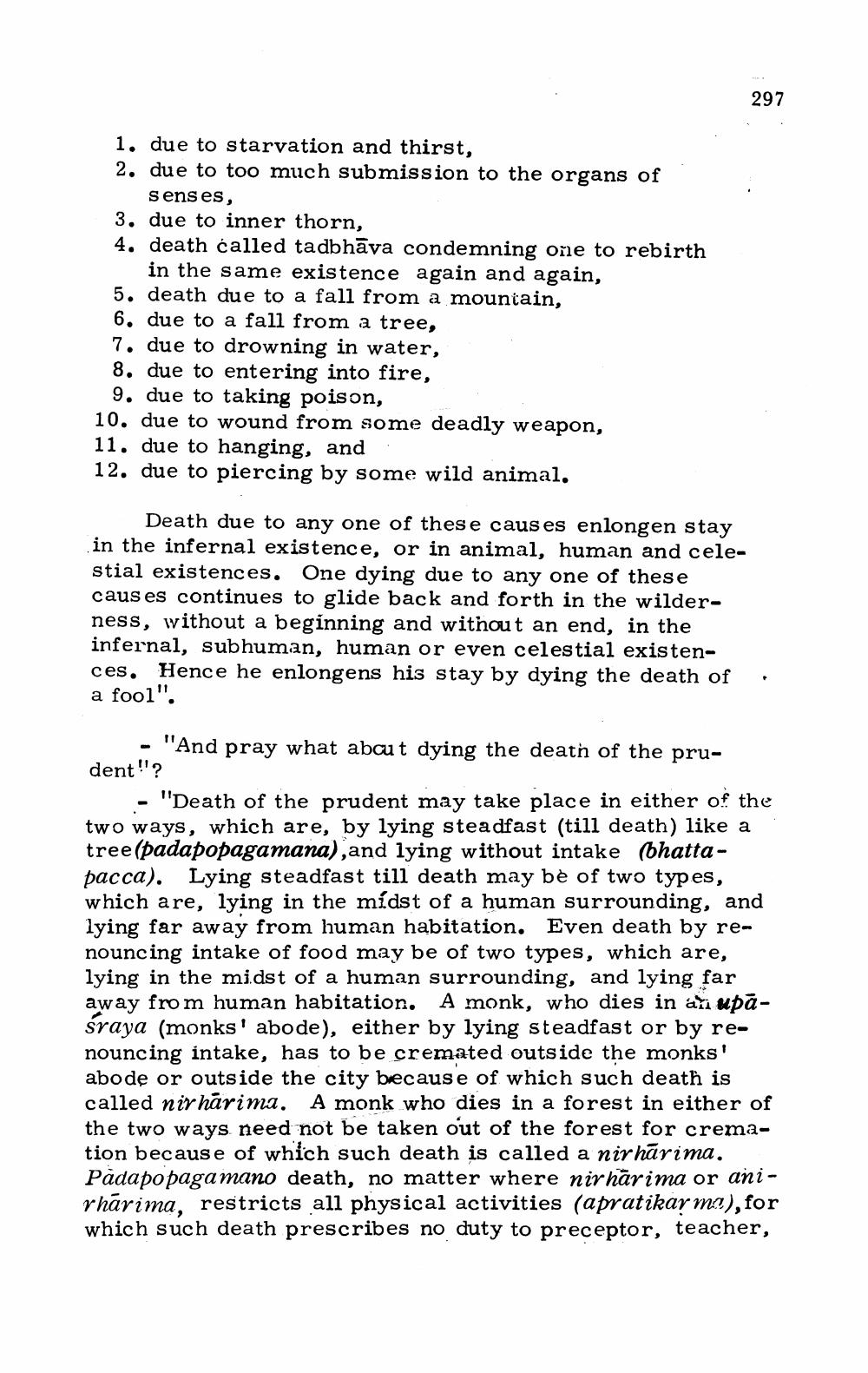________________
297
1. due to starvation and thirst, 2. due to too much submission to the organs of
senses, 3. due to inner thorn, 4. death called tadbhāva condemning one to rebirth
in the same existence again and again, 5. death due to a fall from a mountain, 6. due to a fall from a tree, 7. due to drowning in water, 8. due to entering into fire,
9. due to taking poison, 10. due to wound from some deadly weapon, 11. due to hanging, and 12. due to piercing by some wild animal.
Death due to any one of these causes enlongen stay in the infernal existence, or in animal, human and celestial existences. One dying due to any one of these causes continues to glide back and forth in the wilderness, without a beginning and without an end, in the infernal, subhuman, human or even celestial existences. Hence he enlongens his stay by dying the death of a fool".
.
- "And pray what about dying the death of the prudent"?
- "Death of the prudent may take place in either of the two ways, which are, by lying steadfast (till death) like a tree(padapopagamana), and lying without intake (bhattapacca). Lying steadfast till death may be of two types, which are, lying in the midst of a human surrounding, and lying far away from human habitation. Even death by renouncing intake of food may be of two types, which are, lying in the midst of a human surrounding, and lying far away from human habitation. A monk, who dies in ali upasraya (monks' abode), either by lying steadfast or by renouncing intake, has to be cremated outside the monks' abode or outside the city because of which such death is called nir harima. A monk who dies in a forest in either of the two ways need not be taken out of the forest for cremation because of which such death is called a nir harima. Pădapo paga mano death, no matter where nir harima or anirharima, restricts all physical activities (apratikar m2), for which such death prescribes no duty to preceptor, teacher,




